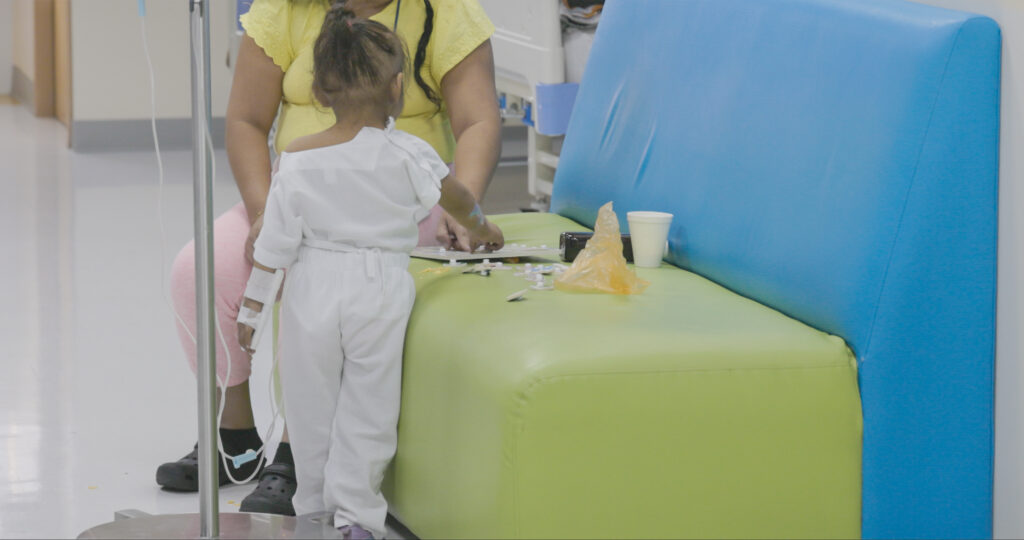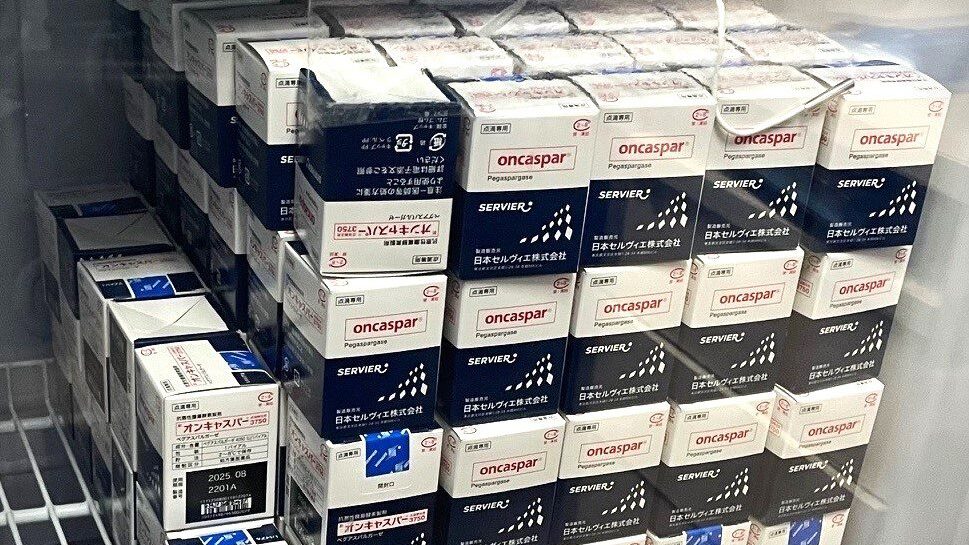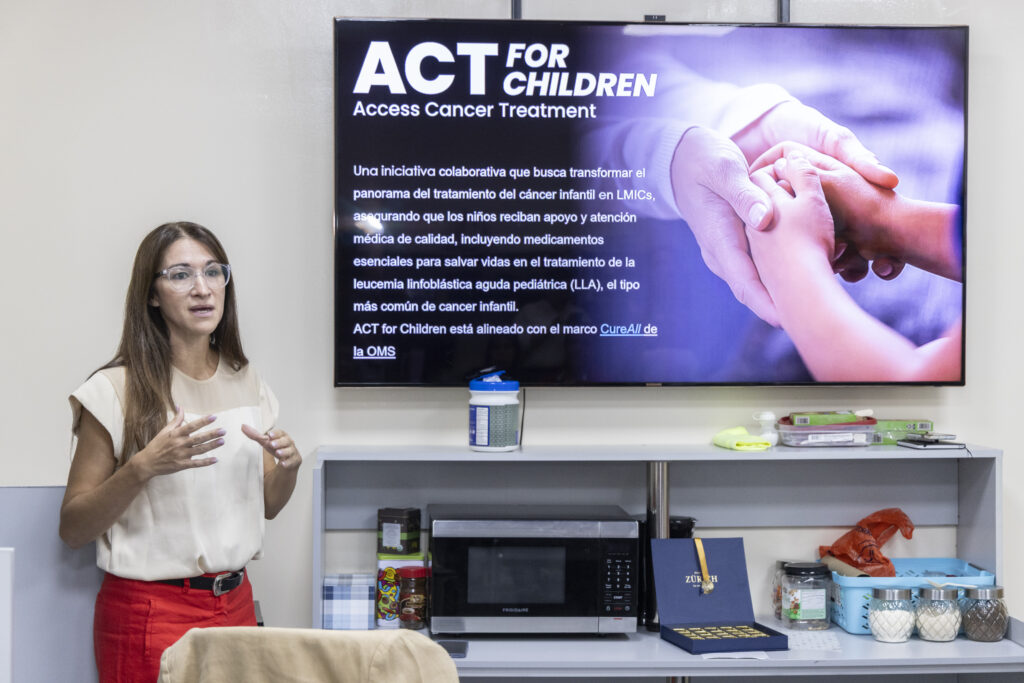In many low- and middle-income countries (LMICs), a childhood cancer diagnosis often comes with limited access to timely treatment, essential medicines, and consistent care. That’s why earlier this year, NCDconnect—through IDA Foundation—joined the Access Cancer Treatment (ACT) for Children initiative, a global collaboration focused on bridging the care and access gap for pediatric cancer patients in underserved regions.

ACT for Children unites Childhood Cancer International (CCI), the International Society of Paediatric Oncology (SIOP), Resonance, Servier, World Child Cancer, and IDA Foundation/NCDconnect—working in close collaboration with the Union for International Cancer Control (UICC)-led ATOM Coalition—to strengthen the childhood cancer ecosystem, from medicine access to clinical care and patient support.
Five Countries, $2.8M in Paediatric Cancer Medicines: ACT’s Impact So Far
Through ACT for Children, $2.8 million worth of high-quality paediatric oncology medicines have been delivered to five hospitals across Asia and Central America, supporting over 1,000 children with acute lymphoblastic leukaemia (ALL).
This includes the distribution of peg-asparaginase, a critical medicine in the treatment of Acute Lymphoblastic Leukaemia (ALL), provided by Servier and safely delivered by IDA Foundation via NCDconnect’s supply chain ecosystem. The first deliveries were completed in Armenia, El Salvador, Guatemala, Indonesia et Honduras earlier this year (2025).

Bloom, San Salvador, El Salvador.
Hospitals served include:
- Yeolyan Hematology-Oncology Center – Yerevan, Armenia
- Ayúdame a Vivir Foundation’s Child Cancer Center at the Hospital Benjamin Bloom/Centro Medico – San Salvador, El Salvador
- Unidad Nacional de Oncología Pediátrica – Guatemala City, Guatemala
- Dharmais National Cancer Hospital – Jakarta, Indonesia
- Children’s Hospital – Tegucigalpa, Honduras
NCDconnect’s Role in Cancer Medicine Delivery and Logistics
As the technical and operational lead on medicine delivery, NCDconnect, through IDA Foundation, ensured a secure and efficient end-to-end supply chain, leveraging over 50 years of expertise in global health logistics. This included:
- Customer and product qualification: Ensuring all stakeholders and facilities met import and safety requirements
- Validated cold chain logistics: Medicines were shipped in 2–8°C cool boxes, approved by our Quality Assurance team, with data loggers included in every shipment to continuously monitor temperature and ensure integrity throughout transit
- Full import documentation: Including customs invoices, packing lists, and airway bills to enable fast clearance
- Coordinated shipments with Green Light process: We worked closely with in-country consignees to approve all documents before dispatch. This pre-clearance ensured that medicines did not sit at customs, preserving cold chain integrity through to the final handover
- Collaboration with forwarders (e.g. Kuehne+Nagel) to ensure strict temperature-controlled shipping, even in hot climates
This hands-on approach allowed us to overcome complex regulatory and logistical challenges—ensuring medicines arrived safely, on time, and ready for use at each treatment center.
A Collaborative Approach to Accessing Pediatric Cancer Treatment
What makes ACT for Children unique is not only its multi-stakeholder structure, but the holistic way it approaches care:
- Servier: Provided $2.8M worth of peg-asparaginase and supports healthcare workforce capacity
- CCI: Supports families with transport, housing, and counselling, and speaks up for better care and resources for children with cancer.
- Resonance: Strengthens local systems by setting up data tools and training healthcare teams.
- World Child Cancer & SIOP: Empower families and train medical professionals to improve diagnosis and treatment.
- IDA Foundation/NCDconnect: Ensures quality medicines reach the right place, at the right time, through an efficient and ethical supply chain.

The result? An ecosystem approach that doesn’t just deliver medicines—it strengthens health systems, supports caregivers, and builds a more resilient response to childhood cancer in LMICs.
What’s Next for Childhood Cancer Access: Country Expansion Plans
Following the successful implementation in the first five countries, ACT for Children is preparing to expand throughout 2025 and 2026:
• Q3 2025: Tanzania, Egypt
• Q4 2025: Burkina Faso, Ivory Coast
• 2026: South Africa, Pakistan
As an established access and supply chain partner, NCDconnect will continue to manage logistics and regulatory processes, working closely with local partners to support readiness, ensure compliance, and preserve product quality throughout the delivery chain.
Why Equitable Access to Childhood Cancer Treatment Matters
Childhood cancer is curable, yet survival rates remain staggeringly unequal—over 80% in high-income countries versus less than 30% in many LMICs. ACT for Children aims to change that by building integrated pathways to care.

